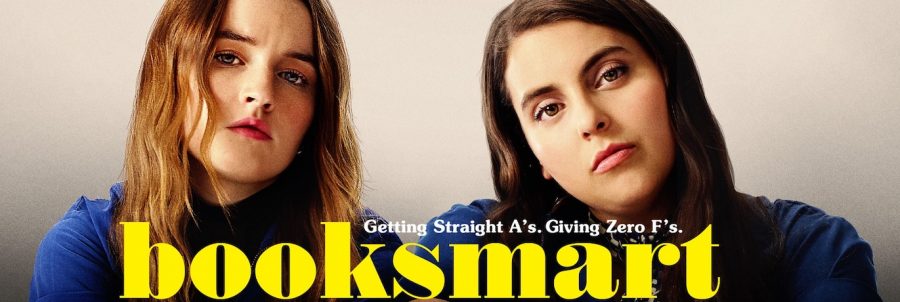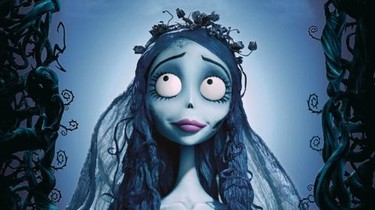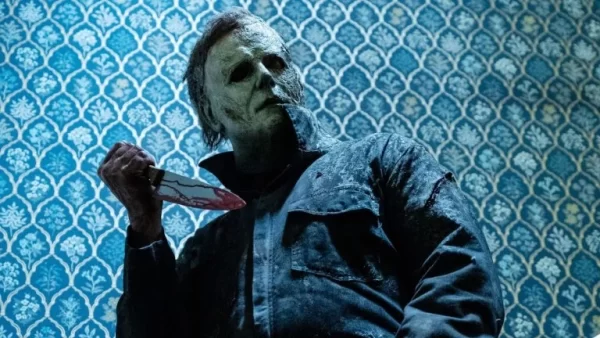Olivia Wilde’s “Booksmart” is funny, but is it Gen Z’s “generational anthem?”
The actress’ directorial debut captures an essence of youth that’s typically absent from today’s teen narratives.
A predominately female, college-aged audience at an early screening of Olivia Wilde’s directorial debut, “Booksmart,” were greeted by a brief video message from the seasoned actress before the opening credits rolled.
“We made this for you,” Wilde exclaimed in the short video. But who did she mean by ‘you?’ Within the film’s lackluster first 20 minutes, you may think Wilde is only referring to the nerdy feminists of the world. But, as the plot unfolds, you realize ‘you’ runs deeper than this superficial assumption.
Inspired by generations of coming-of-age films that cycle through the market, including favorites like “The Breakfast Club” and “Fast Times at Ridgemont High,” the “House” star aspired to bring her own flair to an often cheap and uninspired genre.
The film follows Amy (Kaitlyn Dever) and Molly (Beanie Feldstein), two book-smart best friends who attempt to attend their first party before graduating from their outlandish Los Angeles high school. In typical teen movie fare, our heroines get into comedic hijinks as they attempt to find the party of all parties.
The format of the film – Wilde described it as an odyssey – takes inspiration from “The Big Lebowski,” but smashes it together with the awkward, nerdy teenage quirks that made “Superbad” a hit when it came out in 2007. “Booksmart” takes on a life of its own though, compared to its nerdy brothering.
“I really believe in shifting the paradigm you’re in,” Wilde said in a panel after an early screening of her movie in Cambridge, Mass. on April 11. Wilde exemplifies her statement by crafting a narrative that focuses on two intelligent, feminist female characters. It’s an archetype that often goes underutilized in comedies or is subjected to side-character status. “Booksmart” also follows in “Love, Simon’s” footsteps by starring a queer character, another rarity not only in coming-of-age films, but major releases in general.
These steps toward inclusivity are commendable, but what deserves praise is that “Booksmart” achieves them in a genuinely funny tone. Each scene has no shortage of odd, youthful cracks that feel current to its young target demographic. I appreciated the queer-centric humor and feminist jokes that served as a staple of the movie.
Sadly, the film doesn’t hit these strides until the 20 to 30-minute mark. In that timespan, you begin to worry if “Booksmart” will be another over-the-top high school comedy lacking any substance. This direction was a necessary evil though.
Wilde’s absurd and almost stereotypical set-up allowed her ensemble to flourish throughout the rest of the movie. Each actor takes on a caricature of someone we all knew from high school, but they’re grounded by natural dialogue that’s often missing from teenage narratives. I’m looking at you “Thirteen Reasons Why.”
https://www.instagram.com/p/BuxPUfXAp2Y/?utm_source=ig_embed
I regularly found myself more drawn to what was coming next from the supporting actors than our two main heroines. The little moments they occupied and how they interacted with Amy and Molly were some of the most standout moments of “Booksmart.” This is no knock to Dever or Feldstein’s performances, though. Amy’s awkward demeanor and Molly’s assertive personality provided a balanced dynamic that played well throughout their wild night.
The handling of Amy’s homosexuality also deserves praise. Queer characters can often just be the “queer character.” Wilde allowed Amy to be a multi-dimensional figure who embodies the normalcy and intricacies of queerness in 2019. However, the use of – to my knowledge – a straight actor for Amy leaves more to be desired. Especially since this practice has been coming under fire over the past couple of years.
Another point Wilde attempted to make is that – like high school – there are no villains in “Booksmart,” only people who you don’t understand yet. We are made to judge each character from Amy and Molly’s point-of-view. One that we learn is woefully misinformed.
This moral, as well as others, became a touching moment in a sea of laughter. They’re merely brought down by the overtness in their delivery. It comes to a point where characters spell things out for us instead of letting us freely come to these conclusions.
Nonetheless, these moments are quick and we’re immediately brought back into the action. Aside from a few dips, Wilde created an adventure that progressively became more engaging and funnier with each passing minute.
When Wilde set out to direct her first feature-length film, she strived to create a generational anthem for today’s politically engaged and socially conscious youth.
I don’t see “Booksmart” capturing the same timelessness as past generational anthems – e.g. “Mean Girls” or “The Breakfast Club” – but only time will tell if Wilde’s dream will come true.
For now, “Booksmart” provides an hour and 45 minutes of laughter that’ll become this summer’s next must-see movie.
“Booksmart” hits theatres May 24.
Email Brian at [email protected] or follow him on Twitter @brianshowket.

"The hero of my tale–whom I love with all the power of my soul, whom I have tried to portray in all its beauty, who has been, is, and always will be...











